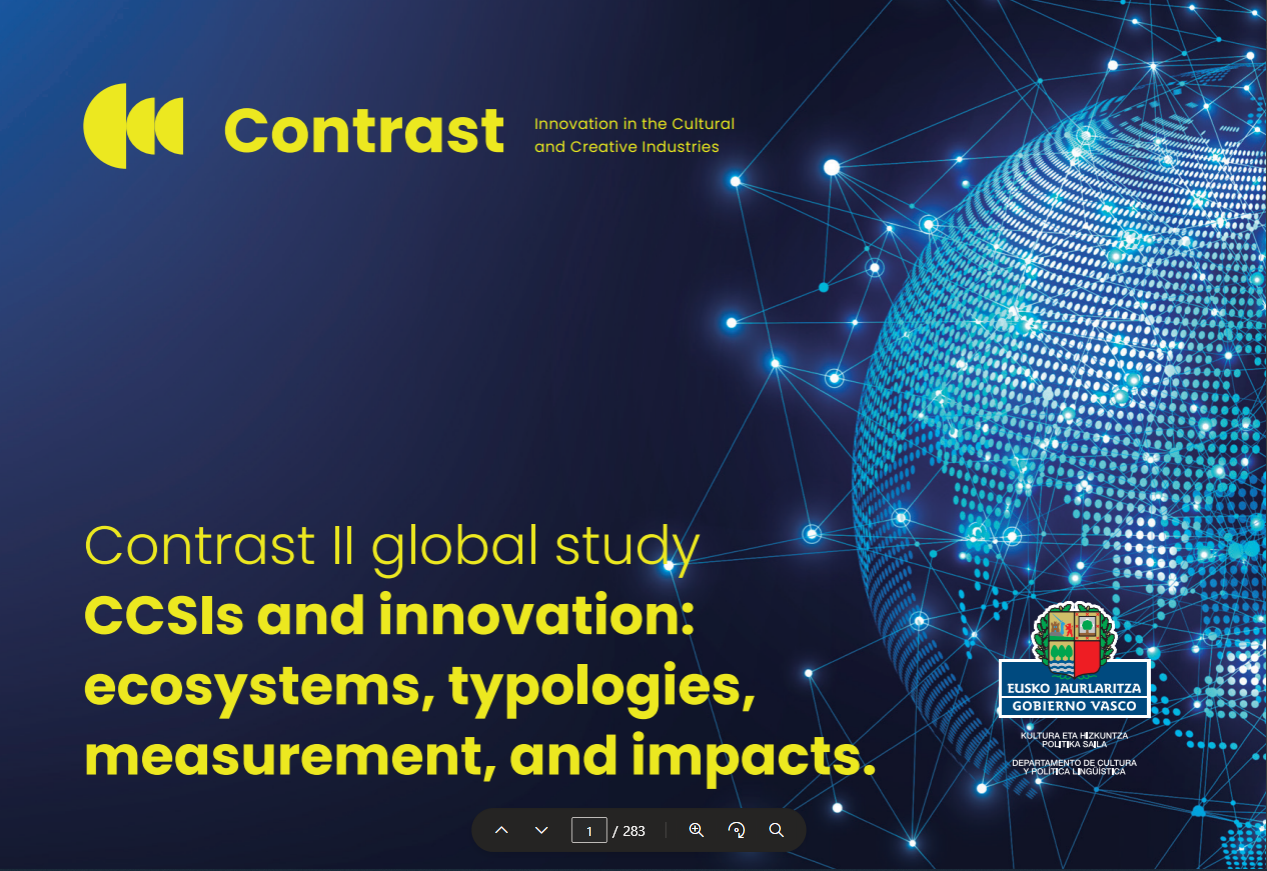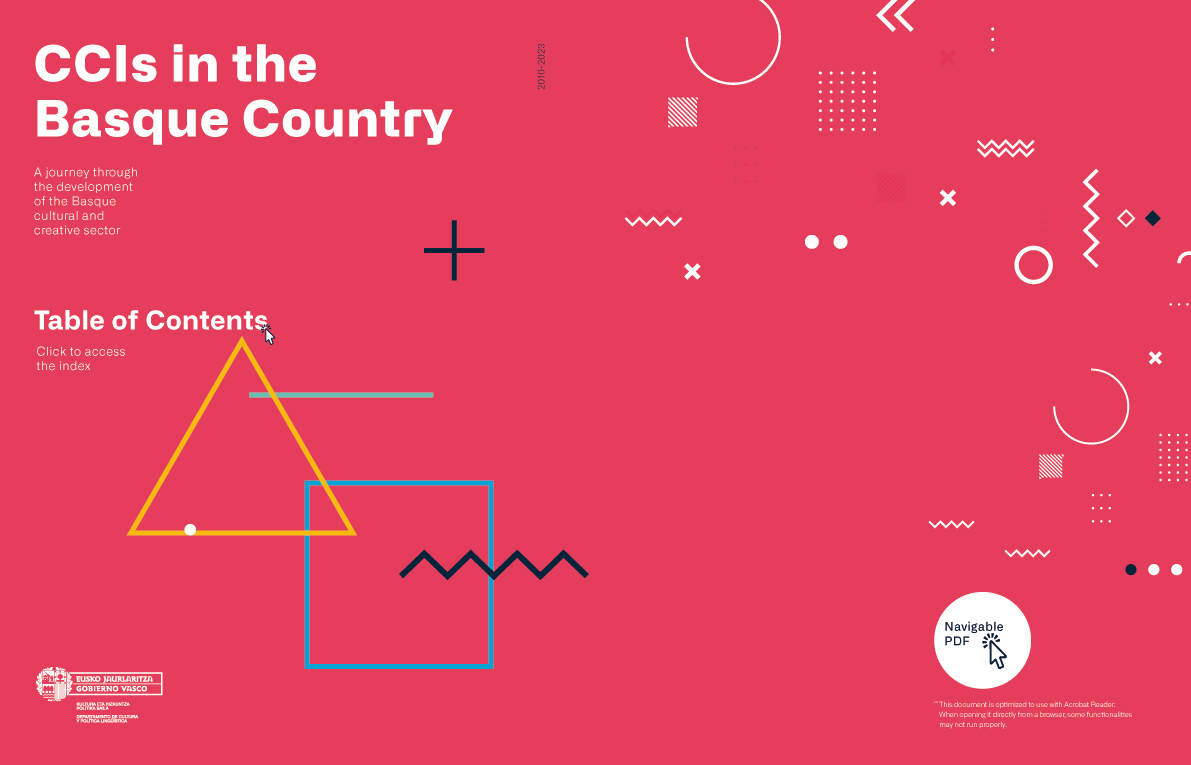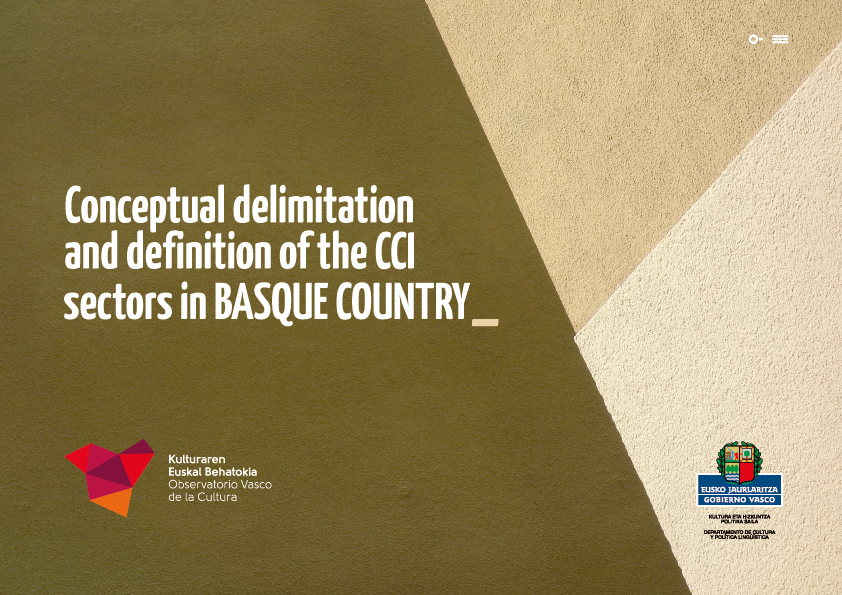CCIs Publications
CCIs Publications
-
Contrast II Global Study

Contrast II Global Study
This report collects and analyses the results of the Contrast II study on Cultural and Creative Industries and Sectors (CCISs) and innovation. It is structured in five main parts: introduction, description of the study results, in-depth analysis of the study results, conference report and final synthesis.
-
General Outcomes: The CCIs & Innovation Contrast project

The CCIs and INNOVATION CONTRAST project is developed by the Department of Culture and Language Policy of the Basque Government, with the participation of key local actors such as the Basque Observatory of Culture (BOC)These sessions with international experts are part of the efforts to create spaces for the exchange of good practices and knowledge development.
This initiative tries to deal with the following detected issues: 1 -Low performance of the Basque Country in terms of indicators of innovation in the cultural and creative industries (CCIs) sector; 2-Lack of application of the major European statistical frameworks at the regional level, where few data is collected for the innovation measurement indicators.
-
CCIs in the Basque Country

A journey through the development of the Basque cultural and creative sector
This publication takes a chronological journey through the evolution of the cultural and creative sector in the Basque Country in recent years: from initial studies and institutional efforts to understand and support the CCI sector, to conceptual and sectorial delimitation, development of new qualitative and quantitative studies and implementation of new supporting instruments in different fields, such as innovation and internationalisation. Initiatives such as the ones carried out under the framework of the CREADIS3 project or Basque District of Culture and Creativity (BDCC), conclude the publication and lay forth lines for the future in the Basque Government's institutional investment in CCIs as a driver for innovation and socioeconomic development.
-
Conceptual delimitation and definition of the CCIs sectors in Basque Country (2018)

The study consists of delimiting and defining the conceptual framework of the Creative and Cultural Industries (hereinafter, CCIs) for the Autonomous Community of the Basque Country. The aim is to make a reasoned choice regarding which sectors will be the object of analysis, as well as providing definitions to mark out its scope.
-
GAZES - an analytical reading of the data of the Statistics for the Creative Industries (2017)

The study consists of delimiting and defining the conceptual framework of the Creative and Cultural Industries (hereinafter, CCIs) for the Autonomous Community of the Basque Country. The aim is to make a reasoned choice regarding which sectors will be the object of analysis, as well as providing definitions to mark out its scope.
-
Basque Culture Observatory Session with international experts - 9th May

Nowadays, the BCO is involved in two ambitious projects: a new edition of the Statistic of Cultural Habits and Practices, and the extension of the Statistic of Arts and Cultural Industries to include the creative industries. They are not totally new projects since they come from previous statistics. However, in both cases, new answers are needed before new research challenges. For example, in the first case, the statistical operation was carried out 10 years ago, but the changes arisen by the growing leisure time spent in the digital environment require a deep reflection.
By way of example, 49.6% of Basque youth aged 15 to 29 enjoy digital leisure activities on a daily basis, according to the Basque Youth Observatory indicators on digital entertainment data from 2016. Along the same lines, as argued by the Digital Culture Report 2017 published by Nesta and Arts Council England – among other quantitative and qualitative studies, “Digital technology has changed the way that we engage with arts and culture, (…) From viewing museums’ collections online to buying theatre tickets via mobile phone”.
The introduction of new elements in the consultation – such as the digital dimension, but not only – poses a double challenge: how to approach “new”, complex issues, on the one hand, and how to do introduce them and yet keep the basis of the statistics so that they are comparable with previous versions. This is the main question underlying the discussion with experts from other contexts, convinced that the experience of others in quantitative research, the exchange of information and the validation of working strategies can facilitate and enrich the development of the BCO´s work, as well as re-inforce other observatories’ work.